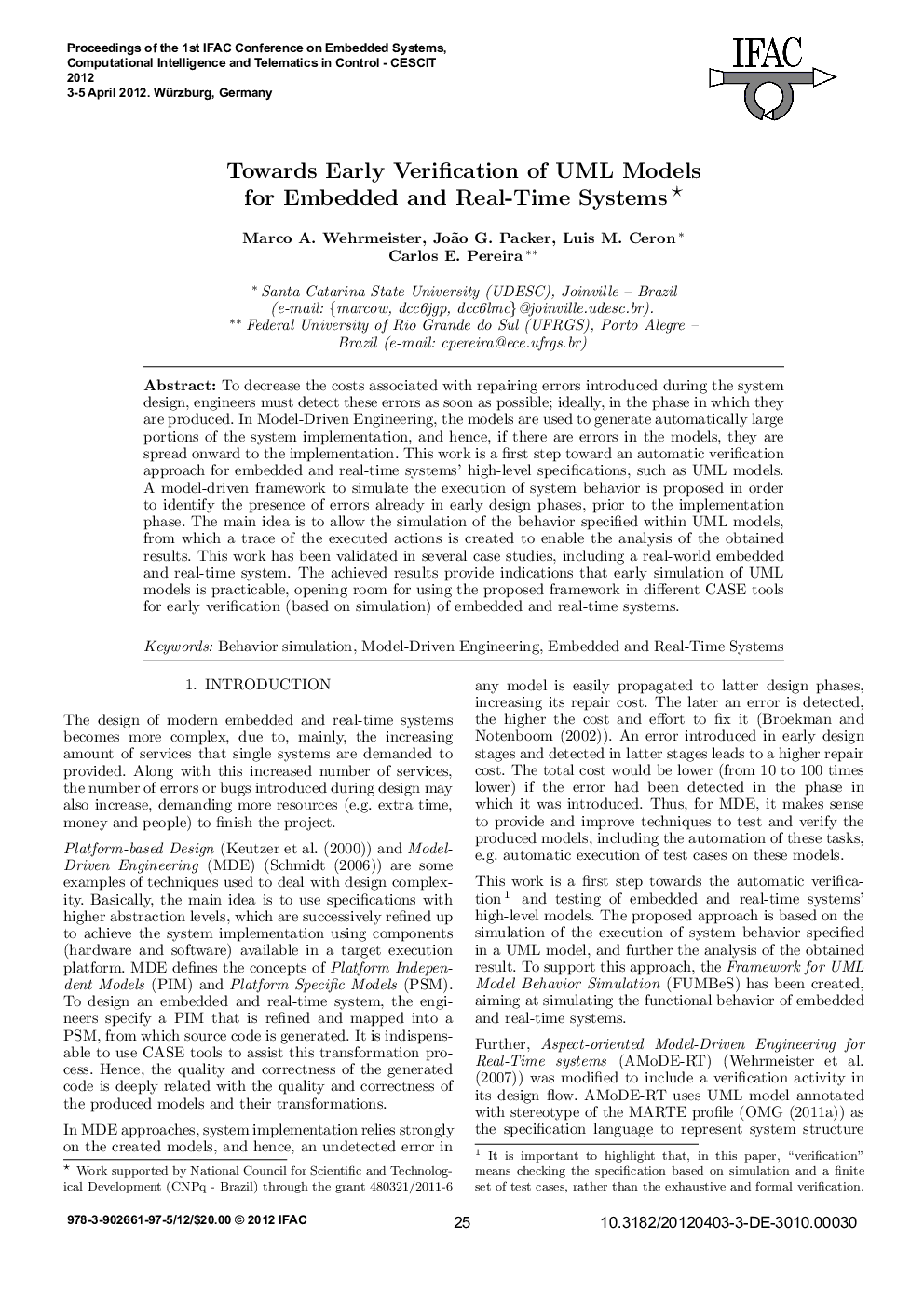| Article ID | Journal | Published Year | Pages | File Type |
|---|---|---|---|---|
| 709859 | IFAC Proceedings Volumes | 2012 | 6 Pages |
To decrease the costs associated with repairing errors introduced during the system design, engineers must detect these errors as soon as possible; ideally, in the phase in which they are produced. In Model-Driven Engineering, the models are used to generate automatically large portions of the system implementation, and hence, if there are errors in the models, they are spread onward to the implementation. This work is a first step toward an automatic verification approach for embedded and real-time systems’ high-level specifications, such as UML models. A model-driven framework to simulate the execution of system behavior is proposed in order to identify the presence of errors already in early design phases, prior to the implementation phase. The main idea is to allow the simulation of the behavior specified within UML models, from which a trace of the executed actions is created to enable the analysis of the obtained results. This work has been validated in several case studies, including a real-world embedded and real-time system. The achieved results provide indications that early simulation of UML models is practicable, opening room for using the proposed framework in different CASE tools for early verification (based on simulation) of embedded and real-time systems.
